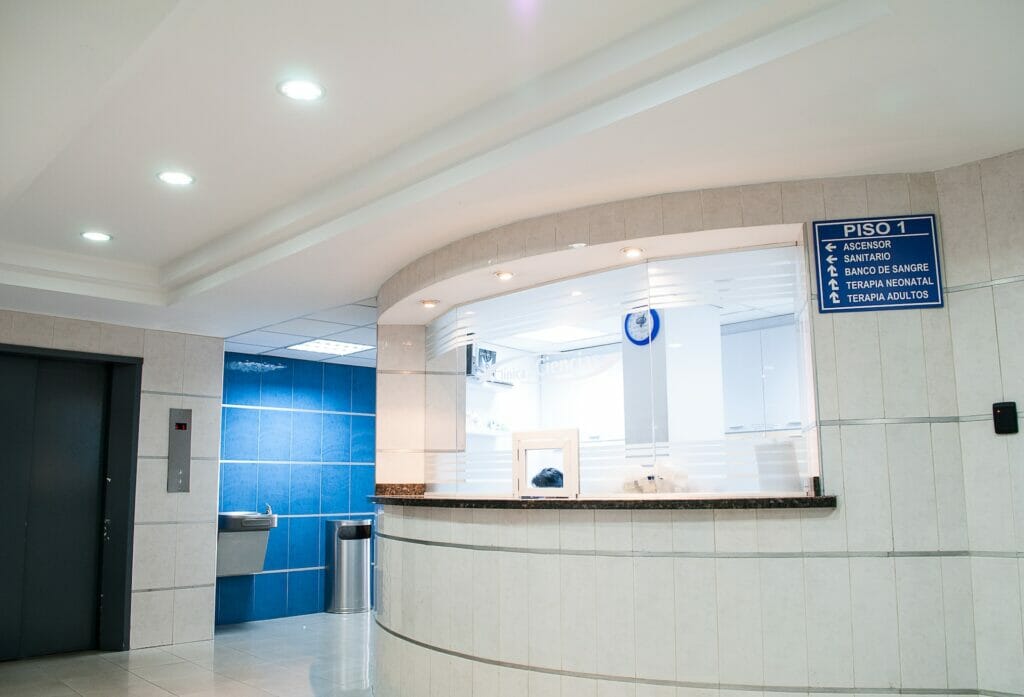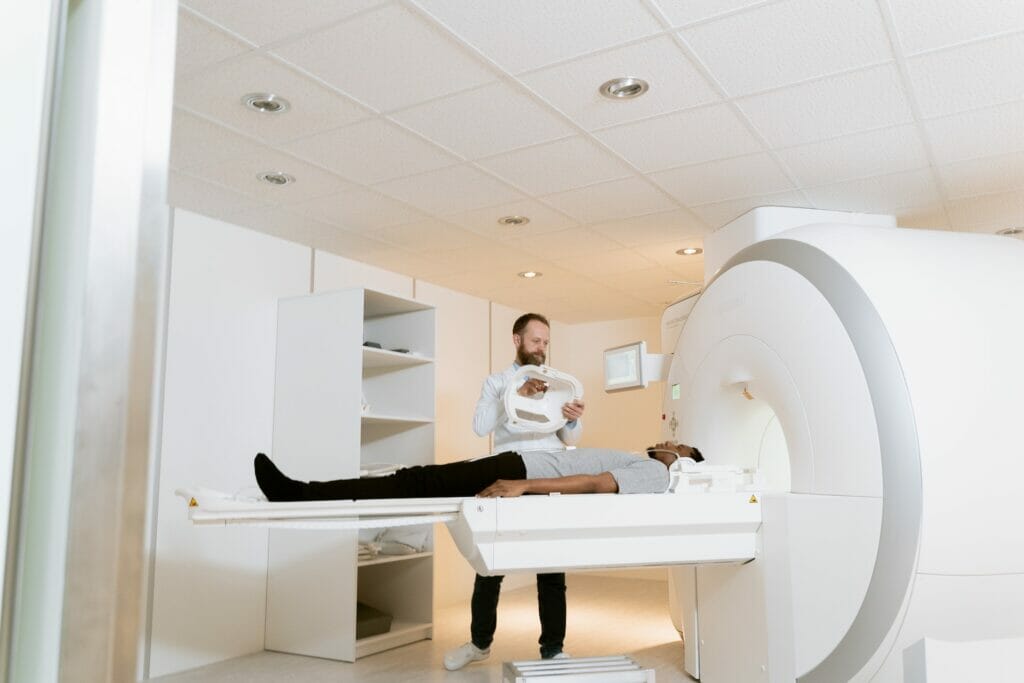In your journey as an expatriate in Portugal, a world of exciting possibilities unfolds before you. Our guide to the Portuguese public healthcare system is tailored to be your trusted companion on this adventure.
Discover how Portugal’s commitment to accessible and high-quality healthcare ensures that you have the support and resources you need, allowing you to immerse yourself in your new surroundings with confidence and peace of mind.
The Public Healthcare in Portugal
The Portuguese public healthcare system, like many other European countries, has certain characteristics that define its structure and operation. Some of the key characteristics of the Portuguese public healthcare system include:
Universal Coverage: The system aims to provide healthcare services to all legal residents of Portugal, regardless of their socioeconomic status or nationality.
Government Funding: The system is primarily funded through taxation and contributions from both employees and employers.
Primary Care Emphasis: Primary healthcare services are a cornerstone of the system, with a network of local health centers and clinics providing first-line medical care and preventive services.
Family Doctor System: Residents are assigned a family doctor (médico de família) who serves as a point of contact for general healthcare needs and referrals to specialists.
Specialist Referrals: Access to specialists usually requires a referral from a family doctor, ensuring a coordinated approach to care.
Electronic Health Records: The system maintains electronic health records for patients, allowing for better coordination and continuity of care.
Waiting Periods: Due to high demand, some patients may experience waiting times for non-urgent procedures or specialist appointments.
Supplementary Health Insurance: Many residents opt for private supplementary health insurance to access faster or additional healthcare services not covered by the public system.

Is the Public Healthcare in Portugal good?
Healthcare in Portugal is generally considered to be of good quality, and there are data and rankings that support this perception. According to the The World Index of Health Care Innovation (WIHI), Portugal ranked in the 22nd position, showcasing its commitment to quality, choice, science, technology, and fiscal sustainability in healthcare.
Additionally, according to the Health Care Index by Numbeo for 2023, Portugal attained the 22nd position, reflecting the accessibility and quality of healthcare services provided to the population.
These indicators and rankings underline Portugal’s dedication to delivering high-quality healthcare to its residents.
Is the Healthcare free in Portugal?
Healthcare in Portugal is primarily provided through the National Health Service (SNS), which offers universal coverage to all residents, including foreigners with legal residence. While the SNS is publicly funded, it’s not entirely free. Patients typically pay a small fee for consultations, treatments, and prescriptions, although these costs are significantly lower than those in many other countries.
Additionally, some services, such as emergency care and certain preventive services, are free of charge. Private healthcare options are also available for those who prefer or can afford them.
How to register in the Healthcare system in Portugal?
Registering for the Portuguese Public Healthcare System is an important step for expatriates and residents to gain access to medical services and there is several steps to follow:
Step 1. Secure a Portuguese Residence Permit
If you are a foreigner who intend to reside in Portugal, you will need to acquire a residence permit (Autorização de Residência).
Step 2. Get a Fiscal Number (Número de Contribuinte)
Before registering for healthcare, you’ll need a fiscal number. This number is essential for various administrative processes in Portugal, including healthcare registration.
Step 3. Obtain a Social Security Number
You will need to obtain a Social Security Number (Número de Identificação da Segurança Social). If you are employed, it is highly probable that your employer has already taken care but if you are self-employed or retired, you will need to apply for it yourself.
Step 4. Choose a Health Center (Centro de Saúde)
Identify the health center nearest to your residence. Health centers are responsible for providing primary healthcare services and managing your registration.
Step 5. Visit the Health Center
Visit your chosen health center in person. It’s recommended to bring your passport or ID, fiscal number, and proof of address (like a rental contract or utility bill). Some health centers might require additional documents, so it’s best to check beforehand. At the health center, you’ll be asked to complete a registration form.
Step 6. Receive User Number
After submitting your registration form, you’ll be assigned a user number. This number will be essential for scheduling appointments and accessing medical services.
Step 7. Register with a Family Doctor (Médico de Família)
If you wish, you can also register with a family doctor at the health center. Having a family doctor will be your primary point of contact for general healthcare needs and referrals to specialists.
Step 8. Receive Healthcare Card (cartão de utente)
Once your registration is processed, you’ll receive a healthcare card (Cartão de Utente) either immediately or within a few weeks. This card confirms your enrollment in the public healthcare system and includes your user number.

Do I need Health Insurance to relocate to Portugal?
Yes, one of the requirements for the D7 visa, and many other residency visas in Portugal, such as the D2 Entrepreneur Visa or the Digital Nomad Visa is to purchase a travel health insurance.
This insurance is necessary to provide coverage during the period between your arrival in Portugal and your interview with AIMA, where you will obtain your temporary residence permit.
The purpose of Schengen Area travel insurance is to provide coverage during your stay in Portugal and other Schengen countries and must include:
- Minimum coverage of €30,000 or more to cover any medical emergencies, hospitalization, and repatriation.
- Valid for the entire duration of your intended stay in the Schengen Area, including Portugal.
- Cover medical expenses in all the countries within the Schengen Area.
- Include coverage for emergency medical evacuation and repatriation to your home country if necessary.
You can consider various insurance providers that offer coverage suitable for the Schengen Area. Here are a few examples:

The Private Healthcare in Portugal for Expats
The private healthcare system in Portugal operates alongside the public system, offering an alternative option for medical care and services. Here are some key points about the private healthcare system in Portugal:
Choice and Convenience: Private healthcare provides individuals with a choice of doctors, specialists, and medical facilities. It often offers quicker access to appointments, tests, and procedures compared to the public system.
Quality of Care: Private healthcare facilities in Portugal often emphasize a high standard of medical care, state-of-the-art equipment, and modern facilities. Some expatriates and locals prefer private healthcare for its perceived quality and personalized services.
English-speaking Professionals: Many private healthcare providers in urban areas have English-speaking medical professionals, which can be advantageous for expatriates and tourists who may not be fluent in Portuguese.
Coverage and Services: Private health insurance plans can cover a range of services, including consultations, hospital stays, surgeries, diagnostic tests, and medications. The coverage can vary based on the plan you choose.
Reduced Waiting Times: Private healthcare typically offers reduced waiting times for appointments and procedures, making it a preferred choice for those who value quick access to medical services.
Costs: Private healthcare services in Portugal are generally fee-based. Patients may need to pay out-of-pocket for consultations, treatments, and procedures, although private health insurance can help cover these costs.

Private Health insurance options in Portugal
When considering private health insurance options in Portugal as a foreigner, you have the flexibility to choose from different providers. One option is to consider international insurance coverage, which is recognized in Portugal and specialize in serving expatriates and offer comprehensive health insurance plans.
Alternatively, many local banks in Portugal provide a range of insurance products, including health insurance, to their customers. They can offer expert advice and help you find the most suitable private health insurance plan in Portugal based on your needs and budget. Here are some examples:

How to select a private insurance company in Portugal?
Choosing a private insurance provider in Portugal requires careful consideration to ensure you get the coverage that best suits your needs. Here’s a step-by-step guide to help you choose a private insurance provider:
Research Providers: Look for reputable private insurance providers in Portugal. You can do this through online searches, expat forums, recommendations from friends or colleagues, and consulting insurance brokers.
Compare Plans: Once you have a list of potential providers, compare their insurance plans. Look at coverage details, benefits, exclusions, deductibles, co-payments, and premiums. Pay attention to whether they offer plans tailored for expatriates.
Network of Providers: Ensure that the insurance provider has a network of hospitals, clinics, doctors, and specialists that you would be comfortable using. Having a wide network gives you more options for medical care.
Check International Coverage: If you plan to travel outside Portugal, consider whether the insurance offers international coverage. Some plans might provide emergency coverage abroad.
Read Reviews: Look for reviews or testimonials from existing customers. This can provide insights into the customer service, claims process, and overall satisfaction with the insurance provider.
Consider Price and Value: While cost is a factor, focus on the value you’re getting for the price you pay. Cheaper plans might have limited coverage, so weigh the benefits against the cost.
Private Hospitals and Clinics in Portugal for foreigners
Within this list, you will find a selection of private healthcare providers that cater to various medical needs and specialties.
These establishments are known for their commitment to excellence, state-of-the-art facilities, and efficient service.
Whether you are a resident or a visitor in Portugal, this guide will help you explore the private healthcare options available to you.

Healthcare for Children in Portugal
In Portugal, healthcare services and vaccinations for children are comprehensive and provided through the National Health Service (SNS).
The SNS offers a range of pediatric care services, including routine check-ups, preventive care, and treatment for childhood illnesses and conditions.
Vaccinations are an essential part of the healthcare system, and Portugal follows a recommended vaccination schedule to protect children from diseases such as measles, mumps, rubella, diphtheria, tetanus, pertussis (whooping cough), polio, hepatitis B, and more.
Preventive care, pediatric emergency departments, health education, and parental support are also available to promote children’s health. School health services and additional vaccines based on regional or global health concerns are provided as well.
Pharmacies in Portugal
Pharmacies in Portugal, known as “Farmácias,” are widely accessible throughout the country, making them an essential component of the healthcare system.
Recognizable by the green cross sign displayed outside their premises, pharmacies in Portugal go beyond merely dispensing medications; they offer invaluable patient counseling services.
Patients can rely on pharmacists to address their concerns, answer questions, and offer guidance on over-the-counter medications. In addition, many pharmacies provide supplementary healthcare offerings, like blood pressure monitoring, diabetes management support, and assistance with smoking cessation.
Pharmacies generally operate during regular business hours, but there are also 24-hour pharmacies available in larger cities or urban areas. Duty Pharmacies (Farmácias de Serviço) remain open during emergencies or outside normal operating hours.

SNS24: Health support in Portugal 24/7
SNS24 is a telephone helpline service provided by Portugal’s National Health Service (Serviço Nacional de Saúde, or SNS). It is a valuable resource available to residents, foreigners and visitors in Portugal that offers immediate medical assistance and advice 24 hours a day, 7 days a week.
When individuals require non-emergency medical guidance or have health-related concerns, they can call SNS24 (toll-free number 808 24 24 24 within Portugal) to speak with a healthcare professional.
The nurses assess the individual’s symptoms and provide appropriate advice, such as whether self-care measures are sufficient, if a doctor’s appointment is necessary, or if emergency medical attention is required.
Why choose Portugal Residency Advisors for your relocation to Portugal?
Local Expertise
We know Portugal. Due to our extensive local knowledge, we believe that concentrating our services in a single country destination is the best way to give you the most thorough and useful information.
Holistic Approach
One single channel of communication for the entire process. We provide you with a comprehensive service that covers all aspects of your move, from identifying the ideal residency visa to finding your new home or helping you to settle.
Transparent Service
We recommend what’s best for you based on an extensive process experience that saves time and money to clients. Our pricing is clear and competitive, and we don’t sell services that make us more money.
Simple Process
Technology plays a very important role in our company. We minimize our clients’ involvement in paperwork. We are customers ourselves and we know how to serve you.

Frequently Asked Questions About The Healthcare System in Portugal
Is health insurance mandatory for the D7 visa in Portugal?
Yes, health insurance is a mandatory requirement for the D7 visa in Portugal. It is necessary to have valid health insurance coverage during your stay in Portugal until you obtain your temporary residence permit.
Can I choose an international health insurance provider for the Portugal visa application?
Yes, as a foreigner applying for the Portugal visa, you have the flexibility to choose either a Portuguese health insurance provider or an international insurance company as long as the policy meets the required criteria.
Can expats access the Portuguese public healthcare system?
Expats who are legal residents in Portugal can access the public healthcare system by registering at their local health center. Non-resident expats may have limited access to emergency care but are encouraged to have private health insurance to cover their healthcare needs.
Is private health insurance necessary for expats in Portugal?
While not mandatory, having private health insurance is highly recommended for expats in Portugal. It provides additional coverage, faster access to healthcare services, and more flexibility in choosing doctors and hospitals. Private insurance can supplement the public system and offer a wider range of benefits.
How do I find a doctor who speaks English or my native language?
In larger cities and popular expat areas, it is often possible to find doctors and healthcare professionals who speak English or other languages. You can inquire about English-speaking doctors at private healthcare facilities or expat forums and communities for recommendations.
How do I register for private healthcare as an expat in Portugal?
To access private healthcare in Portugal, expats can directly contact private hospitals, clinics, or medical centers to inquire about their services and make appointments. Private healthcare providers typically offer a range of plans and services tailored to individual needs.
What are the costs of healthcare in Portugal?
In the public healthcare system, costs are subsidized by the government, and patients pay a small co-payment for certain services. Private healthcare costs vary depending on the provider, but you may expect to pay between €50-150€ per person.
Are there any specific healthcare considerations for retirees living in Portugal?
Retirees living in Portugal can access the public healthcare system by registering at their local health center. They may also consider private health insurance to supplement their coverage and gain additional benefits.
What should I do in case of a medical emergency in Portugal?
In case of a medical emergency, dial the emergency number 112 for immediate assistance. Emergency care is available to everyone, regardless of residency status.
Should I consider using a Portuguese insurance broker for health insurance?
Using a Portuguese insurance broker can be a beneficial approach. Insurance brokers have expertise in comparing policies from multiple providers and can offer personalized advice based on your specific requirements.
Is healthcare free in Portugal?
In Portugal, the National Health Service (SNS) is the primary provider of healthcare, extending universal coverage to all residents, including legally residing foreigners. Although publicly funded, the SNS does entail some costs; it’s not entirely free.




